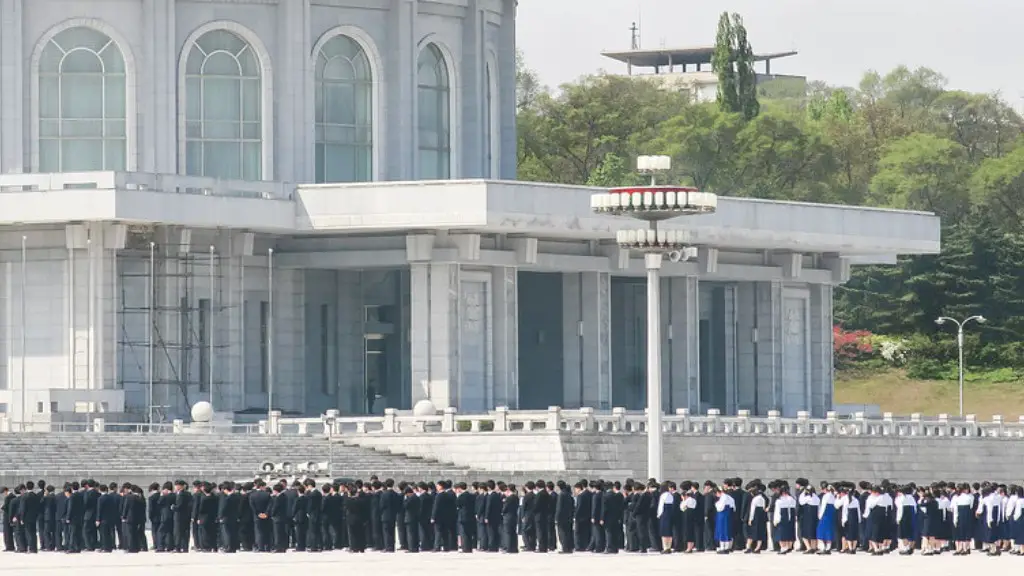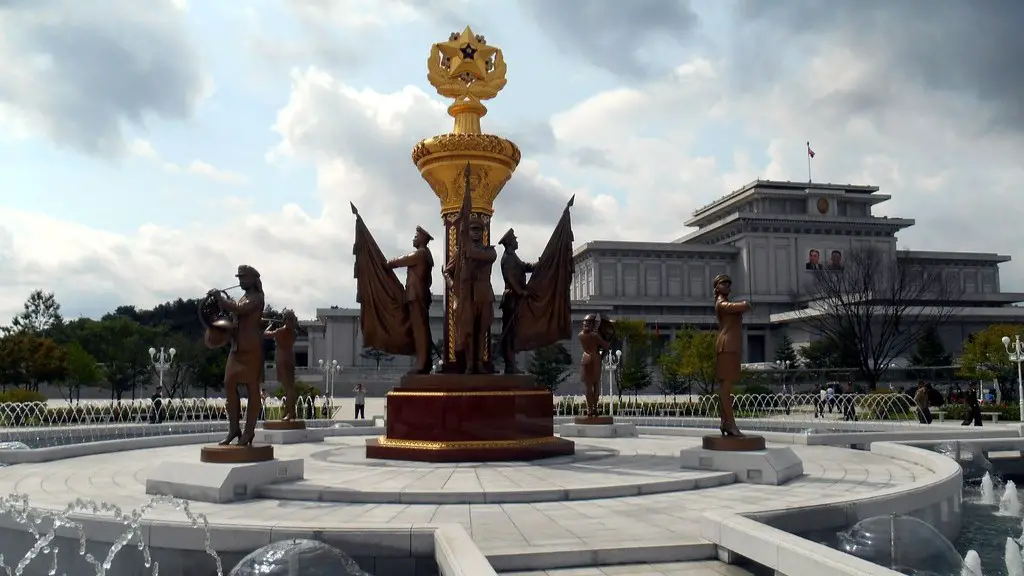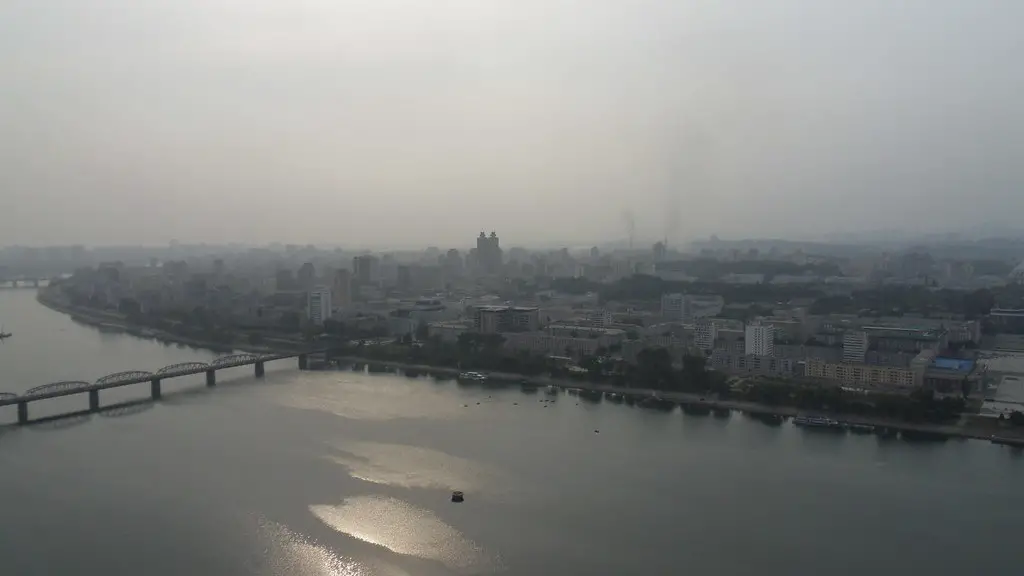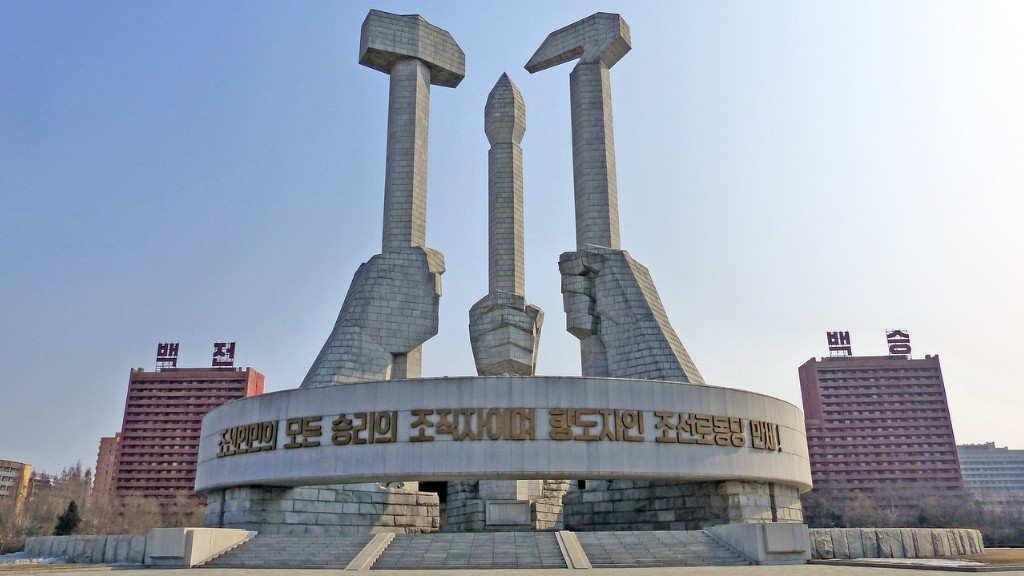How many nuclear bombs does North Korea have? This has long been a contentious question, one without an easy answer. Despite the reclusive state’s denials of having a nuclear weapon programme, all evidence suggests that North Korea has or is in the process of developing a robust programme. North Korea’s nuclear capabilities are cause for serious concern across the world and calls for a rigorous and diplomatic effort to limit the size and scope of the country’s arsenal.
In the early 2000’s it became apparent that North Korea had developed a chemical and nuclear device. The International Atomic Energy Agency (IAEA) and the United States began to push for inspections and verification of the country’s facilities. Negotiations began, however progress was halted and the talks collapsed in 2009 when North Korea refused to allow inspections of its facilities. The country has continued to push ahead with its nuclear programme.
North Korea has been accused of furtive uranium enrichment in secret nuclear sites, as well as the testing of weapons in underground bunkers. It is believed that North Korea has conducted as many as four nuclear tests in the past, the latest of which was thought to be a hydrogen bomb. Global experts have estimated that North Korea may have as many as 20 nuclear warheads, though the exact number is uncertain. North Korea has in recent years proved that it has intercontinental ballistic missiles (ICBMs) capable of reaching the United States mainland, making them a real threat to global security.
The size and scope of North Korea’s nuclear weapons programme is hard to ascertain but one thing is certain: an increasing number of nuclear bombs in the hands of a rogue regime is a very dangerous scenario. The regime also holds an arsenal of conventional weapons, including artillery, guns and rockets which may be used along with nuclear warheads as part of a strategic campaign against a target.
In order to contain and impede North Korea’s nuclear ambitions, the international community, led by the United States, has imposed heavy sanctions against North Korea in an attempt to pressure the country into abandoning its weapons programme. These efforts have had limited success, though, as the North Korean government appears to be intent on pursuing its nuclear aspirations despite the costs and risks associated with it.
The question of how many nuclear bombs North Korea has remains a mystery. With the country maintaining its secrecy and actively rejecting international efforts to contain their programme, the exact number is hard to ascertain. North Korea’s possession of such a dangerous weapon puts the whole world at risk and makes it essential that the international community take measures to manage and contain the situation.
Economic Impact of Nuclear Development
The development of a nuclear arsenal is not the only cost to the people of North Korea.The regime is spending valuable resources on its nuclear programme which could otherwise be used to improve the lives of its citizens.Development of nuclear capabilities instead of providing food, education and healthcare to its people has further impoverished a country already in the “3rd World”.Despite support from China and other countries, it’s clear that North Korea would be able to invest more resources in its people if its pursuit of nuclear capabilities was ended or at least curbed.
The economic impact of the regime’s nuclear development is breathtaking.The majority of the population relies heavily on the state for their subsistence, leaving them exposed when the government reduces spending on basic services in favour of military capabilities. The cost of developing a nuclear power is significant, as its estimated that £3.5 billion has been spent on nuclear builds and detonations in recent years. North Korea’s pursuit of a nuclear arsenal has diverted away economic resources that could have been used to support its people, leading to criticism from the international community.
However, the regime has been unresponsive to these criticisms, indicating the importance it places on its nuclear programme. The economic cost of nuclear development has been a heavy burden on the people of North Korea, and one that the government shows little willingness to address.
Human Rights Issues
The cost of North Korea’s development of a nuclear arsenal doesn’t only affect its people economically. The country has been repeatedly accused of gross human rights violations, including arbitrary arrests and torture of suspects, deprivation of basic living requirements, and suppression of freedom of expression. North Korea’s pursuit of nuclear capabilities at the expense of human rights has been met with widespread criticism from around the globe.
Concern for the human rights of North Koreans is further exacerbated by the regime’s pursuit of nuclear weapons. North Korea has a long history of human rights abuses, but these are often escalated in times of uncertainty and tension. As the monitoring of the country is severely limited, any escalation of human rights issues caused by the development of a nuclear arsenal is rarely noticed or reported on by the international community.
There are serious and long-term implications to the development of a nuclear arsenal in North Korea, not least of which are the human rights issues associated with it. These must be addressed if the international community is to effectively pressure North Korea into abandoning its nuclear aspirations.
Approaches to Non-Proliferation
The international community must take a unified, firm and resolute approach to opposing and containing the North Korean nuclear programme. However, the question remains of which particular techniques may be used to contain and impede nuclear proliferation. One potential approach is the negotiation of international accords to limit the spread of weapons and technologies between states.
The United Nations has in recent years taken a number of steps to help combat nuclear proliferation, including the adoption of the Treaty on the Non-Proliferation of Nuclear Weapons (NPT) and the adoption of the Comprehensive Nuclear-Test-Ban Treaty (CTBT). These treaties aim to combat nuclear proliferation by limiting the scale and extent of weapons development and proliferation. However, many countries have refused to become signatories of the treaties, including North Korea itself.
A further tool in combating nuclear proliferation is sanctions, which can be effective in pressuring a particular country into halting or reducing its weapon developments. The United Nations has adopted numerous resolutions and sanctions against North Korea, targeting the country’s nuclear practices and attempting to limit the country’s access to weapon technologies and resources. The efficacy of sanctions and other forms of pressure is often up for debate, but it is widely believed that the coordinated effort of the international community is the most direct way of containing and preventing nuclear proliferation.
The Role of China
China has in recent years become more involved in efforts to contain the North Korean nuclear programme. The country, which shares a border with North Korea, has a vested interest in maintaining stability and security in the region, making it an essential ally in containment efforts. China is also closely linked to North Korea in an economic and political sense and is seen as a key to pressuring the regime into moderating their nuclear ambitions.
In recent years, the role of China in the North Korean conflict has shifted significantly. China has been an active partner in sanctions against North Korea and has offered a number of concessions in exchange for the halt of weapons development. China has also taken a leading role in negotiations with North Korea in an attempt to convince the country to abandon its nuclear ambitions. China’s involvement has thus far been met with mixed results, but it is clear that the country must continue to play an active and involved role if it wishes to contain the North Korean nuclear programme.
The Chinese government has also sponsored a number of initiatives in recent years to support denuclearization efforts in North Korea. This includes offering financial incentives for the country to abandon its nuclear programme and providing humanitarian aid to the country. China’s efforts are essential in curbing North Korea’s nuclear ambitions, and it remains to be seen what impact the country’s actions will have on the development of the regime’s arsenal.
Conclusion
North Korea’s possession and development of nuclear weapons is a major concern for the international community. It is estimated that the North Koreans may have as many as 20 nuclear warheads in their possession and the threat of these weapons becoming operational puts the entire world at risk. The global community, led by the United States, has attempted to pressure North Korea into giving up its nuclear ambitions, with limited success so far. In order to effectively contain and impede the regime’s nuclear development, it is essential that unified and firm pressure is brought to bear by both regional and international powers. Only through a collaborative and unified effort will it be possible to contain North Korea’s nuclear aspirations.




